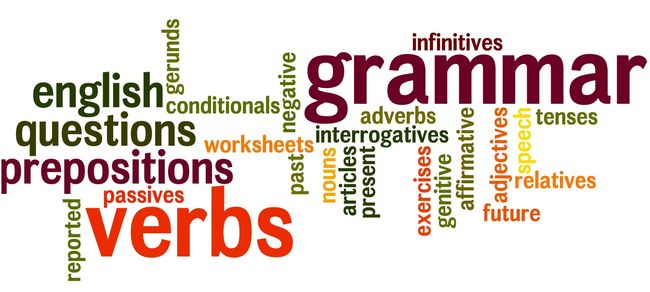Uni1 1
冠词的用法:
一、不定冠词的用法:
1、表示某一类人或某事物中的任何一个,通常在第一次提到某人或某物时用a / an,以表示与其他事物的区别。
I gave him a book yesterday.
2、用其中的任何一个代表他们所属种类的特性。
A horse is useful to mankind.
3、用在事物的度量单位前,如时间、速度、价格等,表示“每一个”。
The potato is sold at about 30 fen a jin.
4、用来泛指某人、某物或地方。
A boy came to see you a moment ago.
5、用于某些特定的词组。例如:a few几个,a little有点,等等。
She has a few friends in this city.
There is a little milk in the bottle.
二、定冠词的用法
1、定冠词特指某(些)人或某(些)事物。
Do you know the man in back?
It is not the car we are looking for.
2、如果第一次提到某人或事物的时候,用a / an,那么以后再提到的话,就变成特指的人或事物了。
I saw a film yesterday. The film ended at eight o’clock.
3、定冠词用于表示世界上独一无二的事物或用于自然界现象或方位名词之前。这些事物当然是特指的事物,不可能有两个或两个以上。
the sunthe moonthe earththe skythe world
4、定冠词与单数名词连用,也可以表示这一类人或事物。
The cat is an animal.
5、定冠词与形容词连用,可表示某一类人或事物。这可看作是省略了名词的用法。
The wounded were brought to the hospital.
注意:the用在姓名复数之前,表示一家人:the Greens
三、零冠词的用法
1、国名,人名前通常不用定冠词:England,Mary
2、泛指的复数名词,表示一类人或事物时,可不用定冠词。
They are teachers.
3、抽象名词表示一般概念时,通常不加冠词。
Failure is the mother of success.
4、物质名词表示一般概念时,通常不加冠词,当表示特定的意思时,需要加定冠词。
Man cannot live without water.
5、在季节、月份、节日、假日、日期、星期等表示时间的名词之前,不加冠词。
We go to school from Monday to Friday.
6、在称呼或表示官衔,职位的名词前不加冠词。
The guards took the American to General Lee.
7、在三餐、球类运动和娱乐运动的名称前,不加冠词:have breakfast,play chess
8、当两个或两个以上名词并用时,常省去冠词。
I can’t write without pen or pencil.
9、当by与火车等交通工具连用,表示一种方式时,中间无冠词:by bus,by train
10、有些个体名词不用冠词。
school,college,prison,market,hospital,bed,table,class,town,church,court等个体名词,直接置于介词后,表示该名词的深层含义;
go to hospital去医院看病
go to the hospital去医院(并不是去看病,而是有其他目的)
11、不用冠词的序数词;
a.序数词前有物主代词
b.序数词作副词He came first in the race.
c.在固定词组中at(the)first,first of all,from first to last
Unit 2
情态动词would,must,might,can’t,should的用法:
would:
1)表示请求、建议等,比will更委婉:Would you pass me the ball,please?
2)表示意志、愿望和决心:They asked him if he would go abroad.
3)would表示过去反复发生的动作或某种倾向。would表示过去习惯时比used to正式,且没有“现已无此习惯”的含义:The wound would not heal.
4)表示估计和猜想:It would be about ten o’clock when she left home.
must
1)表示必须、必要(说话人的主观看法):The play isn’t interesting,I really must go now.
2)表示推测、可能性(只用于肯定的陈述句):You’re Tom’s good friend,so you must know what he likes best.
might
1)表示请求和允许,比may语气更委婉,而不是过去式。否定回答时可用can’t或mustn’t,表示“不可以,禁止”:-- Might I take this book out of the room?--No,you can’t / mustn’t.
2)表示推测、可能性(不用于疑问句),它所表示的可能性比may小: He might be very busy now.
can’t
1)表示对过去行为的怀疑或不肯定,He can’t have been to that town.
2)表示“不可以,禁止”:You can’t take the book out of the room.
should
1)表示“应该”:I should help her because she is in trouble.
2)表示劝告、建议和命令:Should I open the window?
3)表示客观推测:He should be home by now.
Unit3
过去完成时
General rules:
1)如果我们正在说的已经是过去的事,要说到比这再早一些时候发生的事情,就用过去完成时。例如:
Hewasn’texactly a stranger—Ihad methim once before.
Icould seefrom his face that hehad receivedbad news.
Iexplainedthat Ihad forgottenmy keys.
注意:只有存在比所说的过去还要早的情况,才能用过去完成时。谈论前不久发生的事情,不能用过去完成时。如下面两句中的一般过去时不能用过去完成时替换:
Ileftsome photos to be developed.Arethey ready yet?
General Cary,whocommandeda parachute regiment for many years,isnowlivingin retirement.
2)过去完成时常常用在间接引语里,放在said,told,asked,explained,thought,wondered等过去式动词的后面,指在谈话等之前已经发生了的事情。如:
I told them that I had done enough work for one day.
She wondered who had left the door open.
I thought I’d sent the cheque a week before
Unit5
形容词和副词比较级的用法
1.可以修饰比较级的词:
much, a lot, far ……的多;a little, a bit 一点儿;even甚至;still仍然
Tom looks even younger than before.
This train runs much faster than that one.
She drives still more carefully than her husband.
2.比较级常用的句型结构
(1)“比较级+than…”表示“比……”。
Tom is taller than Kate.
(2)“比较级+than+any other+单数名词”表示“比同一范围的任何一个人/物都……”,含义是“最……”。
The Yangtze River is longer than any other river in China.
=The Yangtze River is longer than any of the other rivers in China.
=The Yangtze River is longer than the other rivers in China.
=The Yangtze River is the longest river in China.
注意:The Yangtze River is longer than any river in Japan.
Mike gets to school earlier than any other student in his class.
= Mike gets to school earlier than any of the other students in his class.
= Mike gets to school earlier than the other students in his class.
= Mike gets to school earliest in his class.
注意:Mike gets to school earlier than any student in Tom’s class.
(3) 倍数表达法:
A is three times the size (height, length) of B.
A is three times as big (high, long) as B.
A is three times bigger (higher, longer) than B.
用times 表倍数通常用于三倍以上,两倍可以用twice或double。
The new building is four times the size (the height) of the old one.
Asia is four times as large as Europe.
Your school is three times bigger than ours.
(4) “the+比较级+of the two“表示“两者中较……的”。
Look at the two boys. My brother is the taller of the two.
(5) “比较级+and+比较级”表示“越来越……”。
He is getting taller and taller.
The flowers are more and more beautiful.
He does his homework more and more carefully.
(6) “the+比较级,the+比较级”表示“越……,越……”。
The more careful you are, the fewer mistakes you’ll make.
Now, do the tasks on Page 162 in your textbook.
